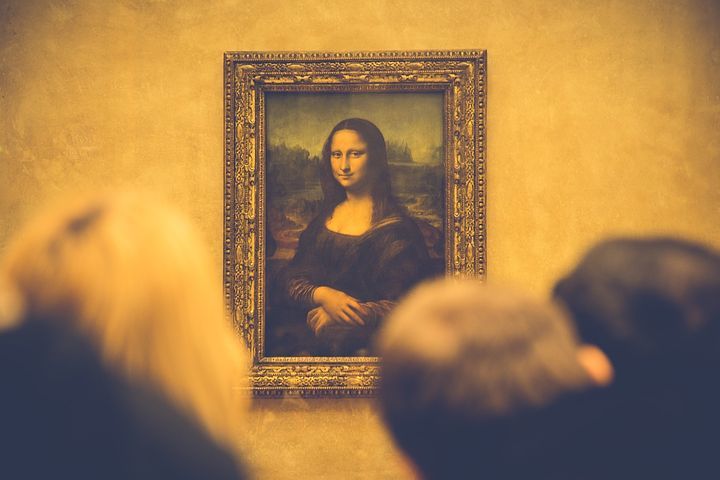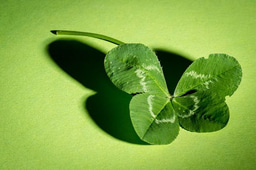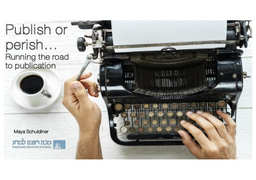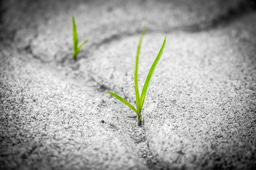The Mona Lisa Effect

The Mona Lisa effect
Maya Schuldiner, Weizmann Institute of Science, Rehovot, Israel
I have stopped going to huge museums. It is not because I dont appreciate great art – but because I find them overwhelming. Art, even the best of it, when packed together in masses, gets too much for me. I have found that when I go to huge museums the same pattern recurs: in the first couple of minutes I find myself excited by every piece of art! Beauty makes its way into my heart and I am elated by the ingenuity of mankind. But then, after the third or fourth room, my brain starts to over-heat, my enjoyment falters, I pick only one or two interesting paintings and ignore the rest and with each turn of a corner, this too fades and by a certain time, little excites me anymore. I am tired and want to go home. At this stage, even if I were alone in a room with THE Mona Lisa, I would not be able to enjoy it. My mother always used to say “too much of a good thing is bad”. Well, that is the Mona Lisa effect for me. At some point, no matter how amazing something is, if it is after too much of the same, then it cannot excite me anymore. So nowadays, I prefer small galleries, single artist shows, 30 minutes of pure joy and then a good cup of coffee. At some point in life you have to know what makes you enthusiastic.
Why am I telling you this? Well, because I can control which museums I visit but I cannot control other aspects of my life in the same manner. For example, about once a month specific events trigger the Mona Lisa effect in me. Not in museums but rather in scientific conferences. During most conferences I go through the same emotional process as I already described above: When the conference just begins I am all bushy tailed and bright eyed. I am “all in” – summarizing the talks, enjoying the elegance of people’s experiments, results and ideas. The second day I can feel the “wear and tear” – I find myself playing with my phone a bit more than I should, I scribble, my summaries …well – let’s just say that they become less glorious. Then the third day starts, I start sinking rock-bottom: – I listen to some talks but others I don’t, stupor settles in – I feel it. And then, the fourth day I hit rock-bottom (because, let’s face it most conferences are THAT long) and I am out. Dead cold, no one is home. Even if I am hearing the next potential Nobel prize winner giving their “once in a decade” talk, I cannot help it - my neurons are a mush. My brain cannot take in anything else. It sucks to be the “fourth-day” speaker.
For many years I have been experiencing this time and time again. I find myself wondering – Is this the best use of my time? And more importantly, am I the only one feeling this? And if I am not – then is this the best use of conference funds? Don’t get me wrong – I love conferences. I think that they drive science forward. I love the fact that these are places where we can hear the state of the art in our field through unpublished data, I love the feeling of comradery and community of science that develops over the years, I love talking to other people in my field and brainstorming or initiating collaborations and I love hearing young students presenting their data for the first time. Conferences are one of the best aspects of doing science. So….why are they wearing us out?
Well, my take on it is simple – The culture of conferences was set decades ago when many things about science and life were different. They were great for then, but are not that great anymore for now. For example, it used to be so difficult and expensive to go to a conference that people went rarely and therefore if a conference was held it was best to cram as many people and talks into it to maximize their potential gain from it. If once a year was all you got, then you had to make sure to hear everyone and see everyone at the same place so conferences were long and had many speakers. But now, most scientists travel much more than they used to. Or take another example, once papers appeared only in hard copy journals and in the absence of the internet, you could have missed important papers if they were not in your library. So, getting updated on the state of the art was an important aspect of traveling abroad. Nowadays, when all papers are online and many appear even long before they are published (for example in bioRxiv) we can read about all the state of the art much faster. Many more things have changed like our attention span, the presence of laptops and cell phones that create easy distractions etc…
Despite this, meetings have remained long (4-5 days), super condensed (push as many speakers in as possible) and in remote places that are hard to get to (for those of us that travel a lot this gets really tiring). Moreover, the flux of science does not stop at talks, often intercalated in the many talks there are hundreds of posters waiting for you during lunch break and into the night (usually in the room with the worst acoustics in the conference building). Also, Biology, as a field, has dramatically grown and therefore communities have often passed a certain size that means that you do not know most people at the meeting. Coupled with the use of electronic media and recording capacities people have become worried that they will be scooped and often fail to present unpublished data anymore killing one of the main attributes of going to conferences. Most importantly, funding agencies that support conferences want a report on how much science has been covered (i.e. how many talks) but not how much of it was actually assimilated or how many interactions have been formed (probably because this is difficult to assess, highly variable and subjective).
Why is no one saying anything about this? Well, this may be just me. I was never one to be able to sit quietly for more than 30 minutes and I find that this only gets worse over time. So maybe everyone else thinks that this is dandy. But I don’t think so. First, whenever I walk around a conference room I see most people are on their computers/smart phones or just falling asleep. Second, when you talk with people at meetings you see the difference between the first and last day – on the last day all you get are tired, washed out faces, overdosed on coffee and too much food (depending on country). But still, no one speaks about this out loud. When I talk to PhD students they often tell me that they never say anything because they believe that it is their own fault for not being able to sustain the enthusiasm - they worry that if they cannot concentrate for the entire conference, then maybe they are not cut out for science. I mean, real scientists should never get tired of listening to great science, right?
Are there solutions to this? I am sure there are. First, I think we should be discussing this. If the culture of conferences is outdated than the time has come for a big change. But what can we change? Here are some thoughts:
- Meetings should not be a place to repeat published data or cram in too many slides about everything that people have done in the last years. It should be a place where scientists report on what excites them right now. Speakers should be encouraged to remember this and plan their talks accordingly.
- Alternating styles of presentation should be used. One great way to keep the energy levels up and hear from many people are flash poster sessions. Other options include adding talks that are not about “pure” science like soft-skills, mentoring etc.
- Sessions should be shorter, breaks should be longer. To accommodate this, talks should be shorter – this would also create a sense of fast-pace and excitement that might keep people in the honeymoon zone for a bit longer.
- Meetings should be a place where people actually meet in the skype/whatsapp age, to discuss and to share and to experience and form a community. So informal occasions to chat and spend time together should be put at the center and not trimmed to the minimum or put as an “extra” for the few that register. Activities that enable people to really meet new members of the community should be actively organized. Physical activities should be encouraged to keep the energy level up.
- Meetings should have a maximum length (3 days? 4 days?)
But these are all solutions for people organizing meetings. I know that I myself have organized meetings that have been long and tedious. It is definitely hard to break out of old habits. I promise to try harder in the future!….
In the meantime – is there something that each one of us can do as participants? One suggestion is to decide in advance for each day what are the 3-5 talks that are the most important for you and you don’t want to miss and make sure to have a break/ coffee/ chocolate before them so that you can be focused on them completely. Also, if you are worn out- don’t come to one session. Just skip it and then come back the session after with a new twinkle in your eye. I have found that just sitting it through ensures that you will never have renewed energy… Try to make the most of the conference by also making sure to interact with people in your field – sit with speakers for speaker lunches, ask people that you appreciate to come and see your poster, introduce yourself and get to know people in your field. Most importantly, don’t worry about feeling like it's all a bit much – it doesn’t mean that you are not a good scientist, not resilient enough to survive in academia, or not clever enough to work your brain until it ignites. It just means that you are normal.
Acknowledgements
I would like to thank my amazing partners to the journey of discovery, my lab members, especially those of took the time to read this piece and give me comments: Thanks to Nadav Shai, Yury Bykov, Lihi Gal, Einat Zalckvar, Eden Yifrach, Uri Weill and Mira Rosenthal. Special thanks to Oren Schuldiner and Michal Sharon for their thoughts on organizing conferences and changes that can be done.





Join the FEBS Network today
Joining the FEBS Network’s molecular life sciences community enables you to access special content on the site, present your profile, 'follow' contributors, 'comment' on and 'like' content, post your own content, and set up a tailored email digest for updates.
I'd never thought to compare attending scientific conference to visiting museums and art galleries but I definitely recognise the parallels of mental progression now!
Conference organisers have to juggle a lot of (often conflicting) factors to get their events up and running, but delegate experience should be a core consideration so hopefully will take note.